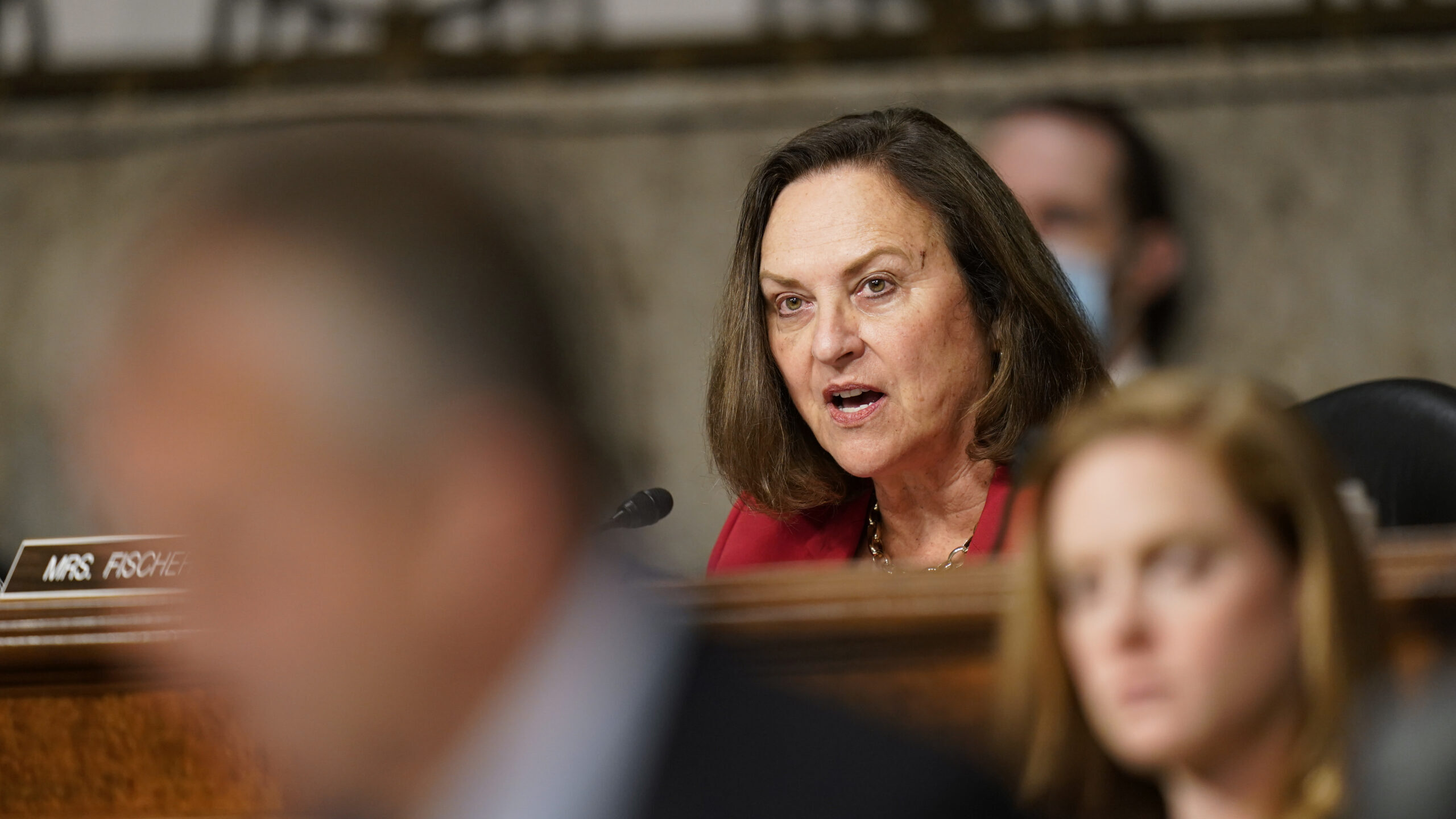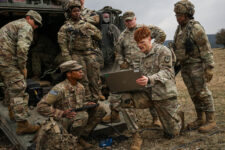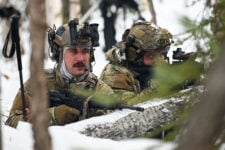
Sen. Deb Fischer (R-NE) speaks during a Senate Armed Services Committee hearing on the conclusion of military operations in Afghanistan on September 28, 2021 in Washington, DC. (Photo by Patrick Semansky-Pool/Getty Images)
WASHINGTON: Two Republican lawmakers on the Senate Armed Services Committee pressed Defense Department leaders recently over the Pentagon’s classified National Defense Strategy and the lack of details surrounding its fiscal 2023 budget request, with one senator saying it undermines the committee’s ability to conduct public oversight.
DoD last week submitted classified versions of the NDS, the nuclear posture review and the missile defense review to Congress. But those documents, which SASC Chairman Jack Reed, D-R.I., said Thursday “will serve as key guideposts” for the committee’s oversight work, have yet to see an unclassified counterpart released publicly.
Sen. Deb Fischer, R-Neb., expressed concern over the Pentagon’s classified strategy documents as well as what she said was a lack of detailed budget justification data.
“I think having this hearing without any detailed information about the budget and when we are unable to openly discuss any of the administration’s strategy documents directly undermines the committee’s ability to conduct its oversight work,” Fischer said. “And it is contrary to the spirit of transparent government that these public hearings are intended to support.”
She added the documents should be unclassified “so that the people in this country understand the threats that we face, so that when they have the information and can review that for themselves, they will support our national defense, they will support our national security.”
RELATED: As Republicans Push Pentagon Over Inflation, Austin Says FY23 Budget Is ‘Robust’
Sen. Dan Sullivan, R-Alaska, said there’s “not much anything that’s classified” in the NDS and DoD could get that out publicly pretty soon.
Austin confirmed an unclassified version of the national defense strategy will come out “a bit later,” but didn’t lay out a clear timeframe for when that might happen.
The “national defense strategy advances our goals in three main ways: forging integrated deterrence, campaigning and building enduring advantages,” Austin said. “Integrated deterrence means combining our strengths across all warfighting domains to maximum effect to ward off potential conflict. Campaigning means our day-to-day efforts to gain and sustain military advantage and to counter acute forms of coercion by our competitors, and to complicate their preparations for aggression. And to build enduring advantages, we need to accelerate force development, acquiring the technology that our warfighters need.”
The lawmaker complaints about the lack of unclassified versions of the national security strategies come just weeks after a leading Democrat on the committee, Sen. Elizabeth Warren, D-Mass., raised concerns about the Pentagon restricting unclassified data in a critical Pentagon weapons report. (Warren did not weigh in on the classification debate Thursday.)
In January, the Pentagon’s independent weapons tester eliminated data about the performance of more than 20 weapon programs from the public version of its annual report and, for the first time ever, included with a “controlled unclassified information” version. That version was available only to Congress and DoD personnel. In total, information was redacted from the public version for a total of 22 programs.
RELATED: Warren slams Pentagon for restricting unclassified info on weapon flaws
Then-acting head of the Pentagon’s Director of Operational Test and Evaluation Office Raymond O’Toole said the decision to release the controlled version of the report was because some of the unclassified information could wind up in adversaries’ hands.
Dan Grazier, a fellow at the Project on Government Oversight, previously told Breaking Defense it was concerning to see the leaders of DOT&E bending to pressure from the services on their anti-transparency push.
“Congress established DOT&E in 1983 over the furious objections of service and defense industry leaders because members knew they weren’t getting the truth about the performance of new weapons,” he said. “The law clearly states that there should be two versions of the annual testing report, a classified version and an unclassified version. By caving to pressure inside the Pentagon and hiding unclassified information behind a pseudo classification, the current leaders of DOT&E are undermining the effectiveness of their own agency.”






















